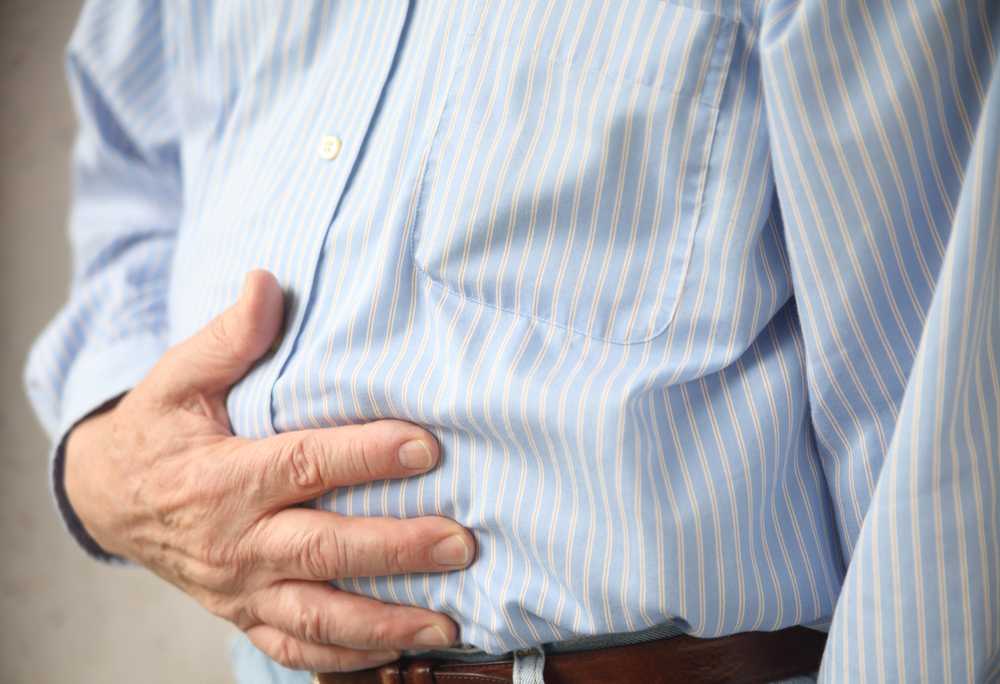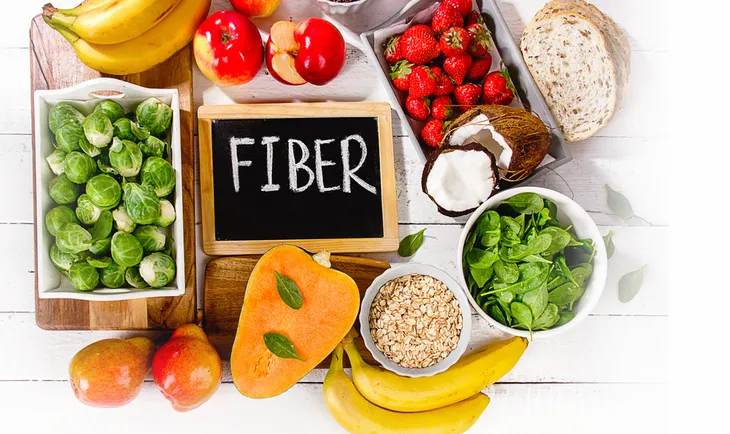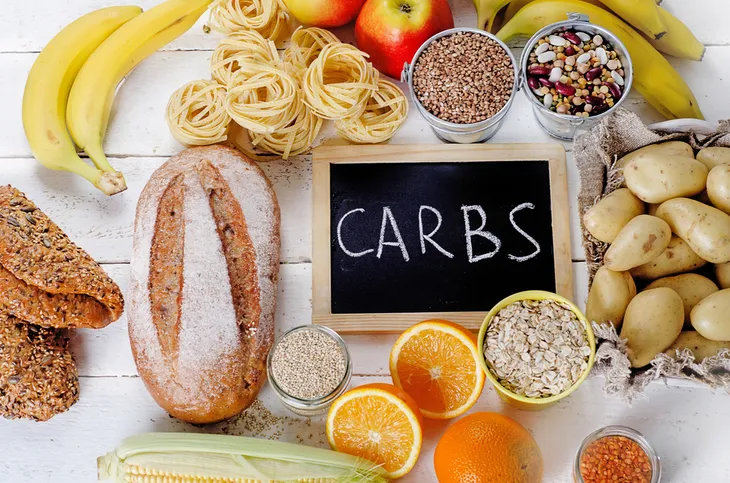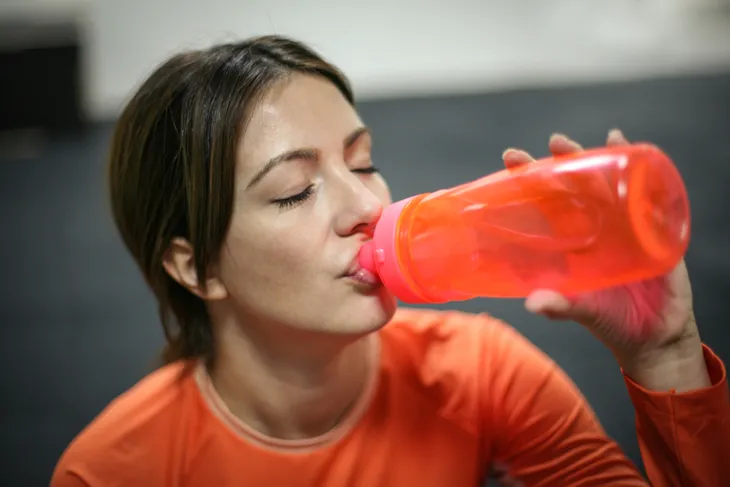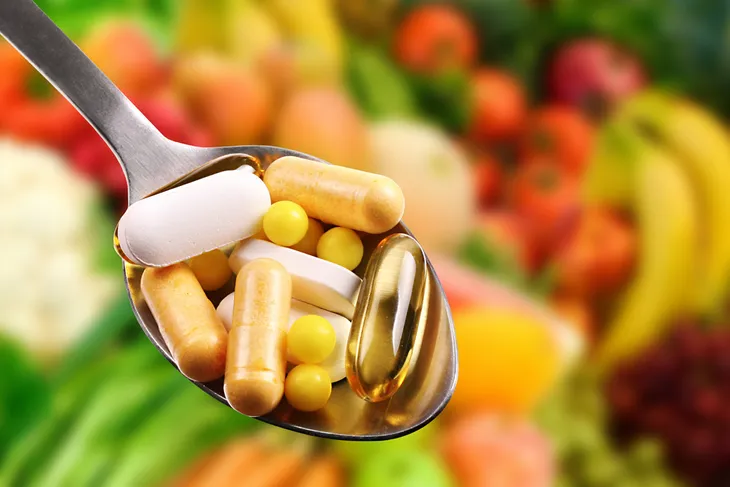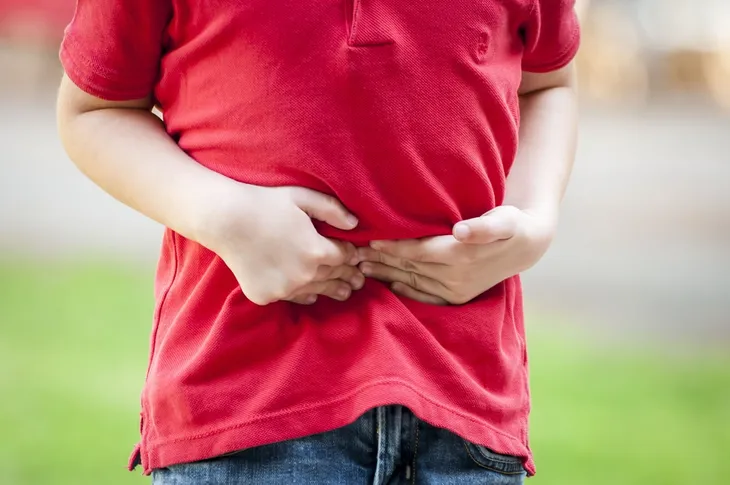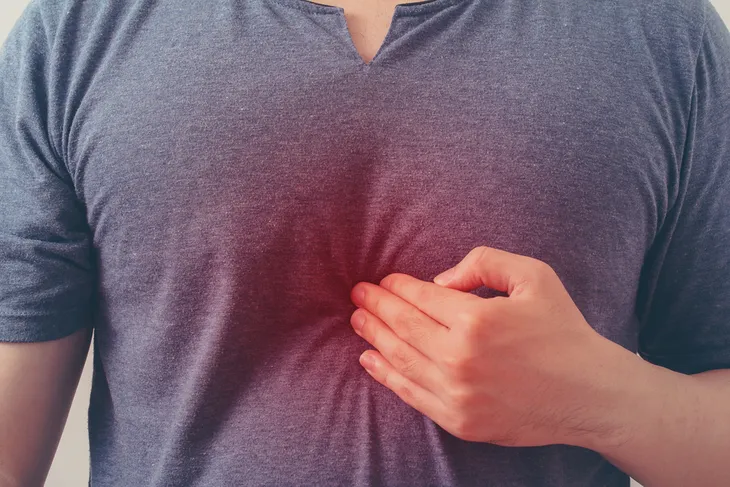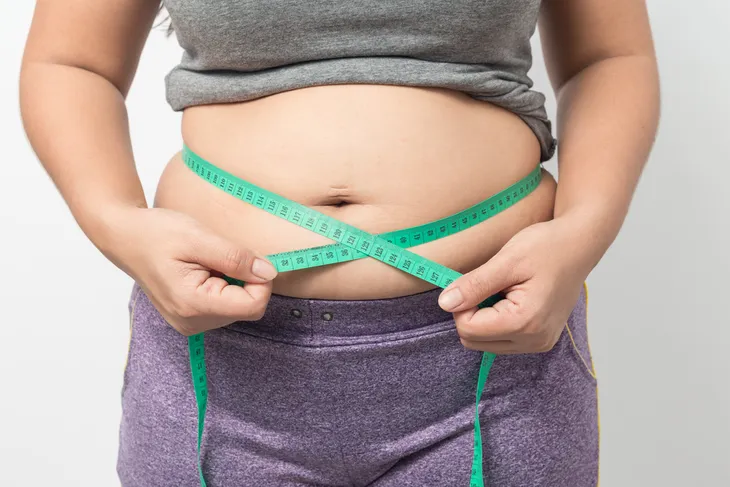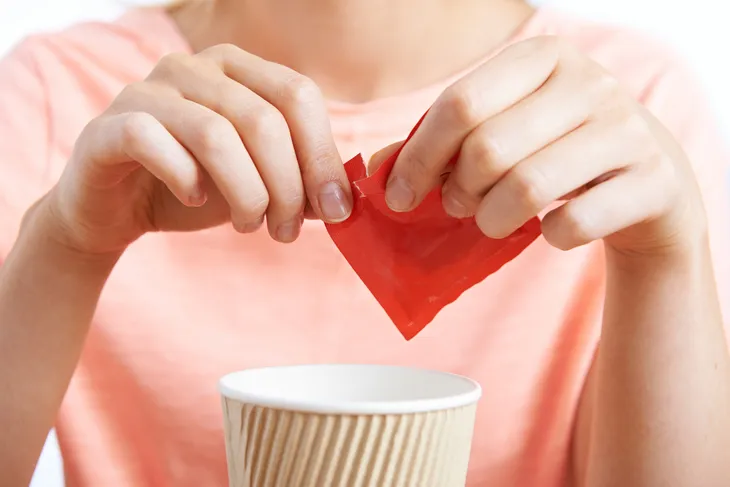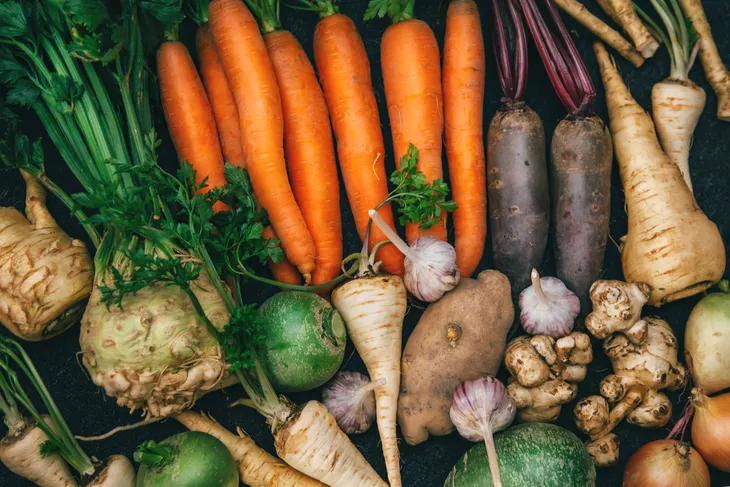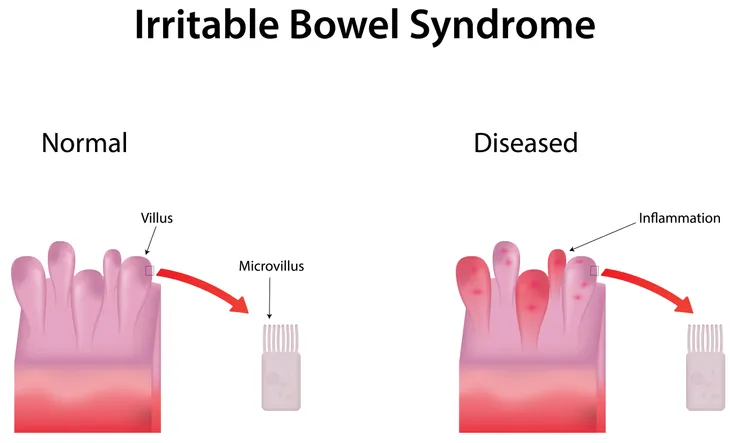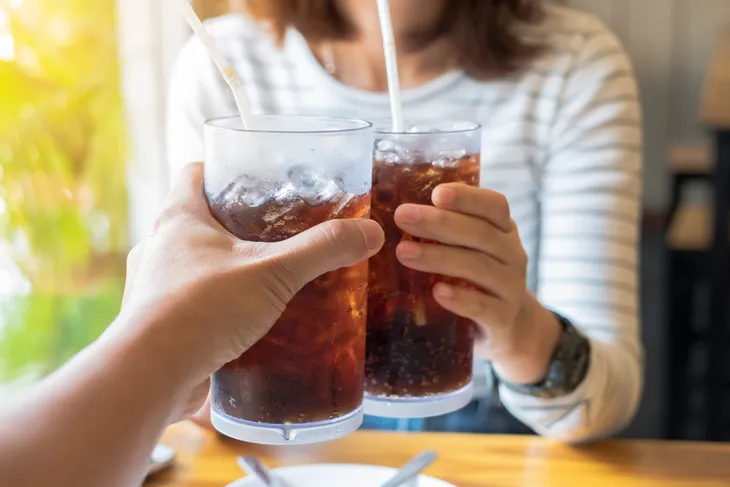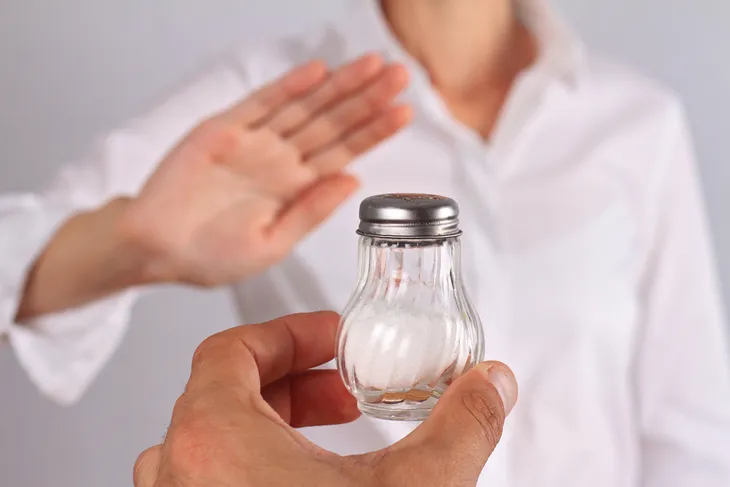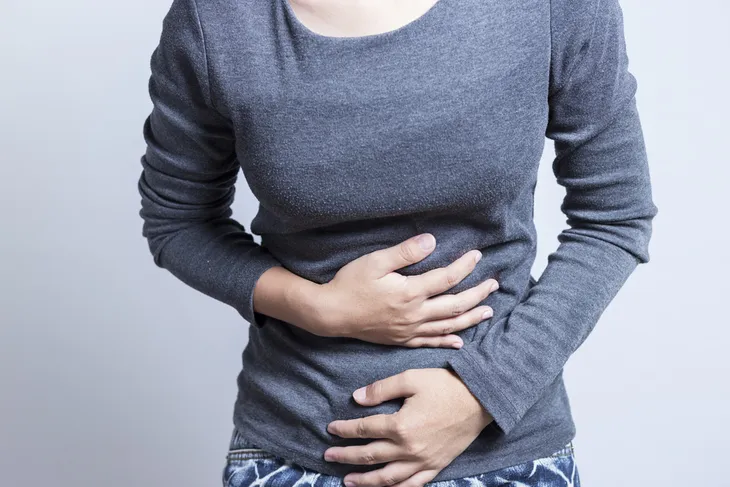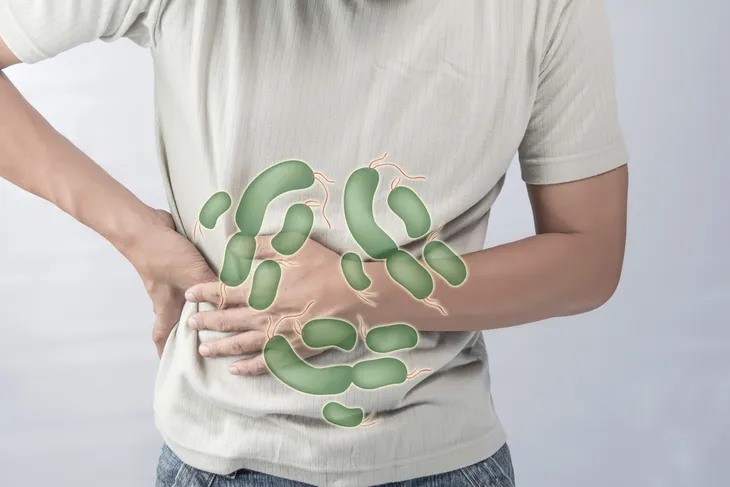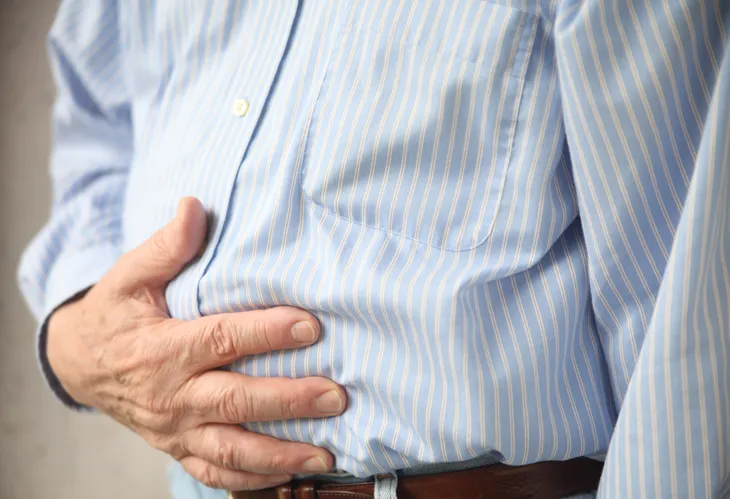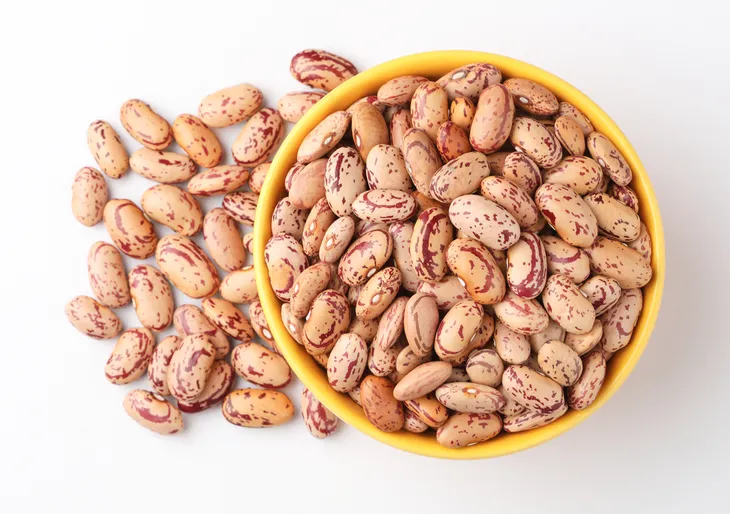Do you ever pull on your jeans in the morning and it seems that you’ve grown what seems like four inches around your midsection? You’re not imagining things—it’s the dreaded belly bloat! And even if you’re going for daily runs and eating right, many factors in your day can contribute to sudden and unexpected belly bloat.
One way to determine which foods might be causing your gastrointestinal discomfort is to keep a food diary. Make a note of what you ate, how much you ate, and the time you ate it. Then, when you detect bloating symptoms, make a note of them as well and figure out how long it took them to develop. You should also consider what you ate before they developed. You’ll likely notice links between bloating symptoms and certain foods. You can then make the necessary dietary adjustments to relieve your symptoms.
Here are 20 common (and surprising) causes of an inflated midsection…
Want diet & nutrition content delivered straight to your inbox? Sign up for our exclusive diet & nutrition newsletter!
Fiber-Rich Overload
We’re always being told to eat more fiber; it’s known to help regulate your appetite, promote weight loss, help you stay regular and assist in good overall digestive health. However, many of us make the mistake of taking in too much fiber too soon when we change our dietary habits. While you should definitely make fiber part of your diet if you’re eating healthier as part of a New Year’s resolution or a weight loss plan, the key is to gradually increase your intake over a period of a couple of weeks.
When your body isn’t used to fiber and you suddenly switch to a diet of salads, whole grains, high-fiber cereals and fresh fruit, you are likely to experience painful bloating. A good way to avoid this is to swap out foods in your diet one by one instead of making all the changes at the same time.
Carbohydrate Intolerance
Many cases of belly bloat are triggered by eating slow-digesting carbohydrates, particularly those which are high in dietary fiber or known to cause gas. Nuts, beans and legumes are all associated with increased levels of intestinal gas, and if you consume a large amount of any of these foods, you’re likely to notice a bloating effect in your stomach within the hour.
Chugging Liquids
Sure, hydration is important, but it’s much better for your body if you sip water throughout the day rather than guzzle down a liter in a few minutes. While drinking small sips of water regularly encourages healthy digestion, guzzling water too quickly can cause a painful, bloated, and sloshing-full belly because your body can’t absorb that amount of H20 all at once. Thus, you have no choice but to store the excess fluid in your stomach.
Another effect of drinking too much water too quickly is that it can actually cause you to lose hydration rather than gain it. Ingesting a large quantity of fluid will have a diuretic effect on your body; in other words, it will trigger urination and clear your body of stored fluids. If you’re thirsty, you’re much better off to take small sips of water over an extended period of time (an hour or more) instead of gulping down a massive amount.
Vitamins & Supplements
If you are lactose intolerant or have a gluten intolerance it’s best to read the labels of multivitamins and supplements, says Julie Ching, registered dietitian. Many supplements and vitamins contain lactose and gluten additives, which can lead to buildups of excess gas in your abdomen. If you’ve recently introduced a multivitamin or other supplement to your diet and you’re noticing a sudden increase in bloating, check the label to see if the supplement contains lactose or gluten. If so, switch to a lactose-free or gluten-free alternative to see if symptoms clear up.
It’s also worth keeping in mind that many dietary experts believe it’s always better to get vitamins, minerals and nutrients from natural sources rather than synthetic alternatives. Instead of taking supplements, research foods which are high in the kinds of nutrients you’re getting from pills and add more of them to your diet. Introduce multiple new foods slowly to ensure your body doesn’t produce excess gas as part of a sudden transition to a dramatically different diet.
Constipation
As embarrassing as it is to talk about, constipation is an extreme symptom of painful belly bloat. You can tell the difference between a gassy tummy and a constipated body by the tautness of your Buddha belly. If it’s rock-solid, chances are that impacted bowel movements and constipation are the chief culprits. Relieving constipation can be done naturally, by increasing your water intake and eating foods high in insoluble fiber. Bran, seeds, fresh fruits and vegetables with the skins intact can all encourage your body to pass a bowel movement.
Failing natural interventions, try out a stool softener or other gentle laxative. These over-the-counter medications can get things up and running overnight, though you shouldn’t take them for an extended period of time (i.e. longer than a couple of days). If the constipation persists, make an appointment with your doctor to find out if there are any other treatment options available.
Sports Bars & Powders
A high-protein sports bar might be just the chewy energy rush you need before a workout. However, most store-bought varieties are high in two compounds that can cause belly bloat: fructose (or maltodextrin) and carbohydrates. In essence, these compounds are present because of the concentrated fruit in many of these supplements. It can be super hard to digest those processed fruity ingredients, so they often cause gas and bloating…and that’s not what you need before your spin class.
As an alternative, try consuming a high-protein, low-fructose snack that won’t add a lot of bulk to your belly before a workout. An excellent combination is a pot of yogurt or a handful of nuts and a small piece of fresh fruit. These foods will deliver the energy you need without the processed chemicals in many commercially prepared workout supplements. They’re also much better for you on the whole.
Acid Reflux
If you’re constipated, bloat will be centered in your lower abdomen. However, if the bloating is affecting your upper belly just below your rib cage, it means you might be suffering from acid reflux. This is particularly likely if your symptoms intensify after meals. Acid reflux is the result of stomach acid pushing its way into your upper abdomen and esophagus, causing nausea and burning in the throat.
There are many natural ways to control acid reflux; first, you should avoid eating roughage (such as salad leaves or raw vegetables) on an empty stomach. You can also stop it by not laying down immediately after eating. If these measures don’t improve your symptoms, talk to your doctor. There are medications and other treatments available, which will reduce the acid levels in your stomach and prevent the uncomfortable and downright painful symptoms that acid reflux can cause.
Excess Weight Around Midsection
It makes perfect sense if you think about it—excess tummy fat places more pressure on the midsection, particularly when sitting and eating. This can stifle digestion and cause bellies to bloat uncomfortably. If you happen to be what people informally refer to as “pear shaped” or “round around the middle,” you are more prone to bloating than people with other body types.
While losing weight and reducing the amount of belly fat you’re carrying can help, there are other shorter-term interventions which can provide relief. First, head out for a walk around the block after eating to help kick start the digestive process. Just don’t walk at too intense a pace or you might upset your stomach. Second, avoid lying down after eating. This is known to make digestion even more difficult, and will make your bloated belly more intense and possibly more painful.
Milk Intolerance
If dairy products, such as cheese, milk, butter, and cream, are among your favorite foods, you may experience a lot of belly bloat after eating them. In such cases, the actual root cause may be dairy intolerance. Lactose intolerance is the most common type of dairy intolerance, and it can easily be remedied by taking a lactase enzyme. Alternately, you can increase your yogurt intake, as yogurt contains a lot of beneficial bacteria.
However, if you have a casein allergy, you will need to avoid natural dairy altogether. Casein is the natural protein found in cow’s milk and products derived from cow’s milk. You may have to eat synthetic dairy alternatives made of soy or almonds, or choose goat milk, goat cheese, or sheep’s milk and sheep cheeses instead. These products are widely available in specialty grocery stores, and through your local farmer’s market.
Avoid Sugar Substitutes
Many of us consume artificial sweeteners to avoid unnecessary calorie intake or promote weight loss. Examples include sucralose, aspartame, stevia, and sugar alcohol (or “mannitol”), which are found in a long list of diet snack foods, diet soft drinks, and sugar-free foods. However, these artificial sweeteners are known to cause painful belly bloat, as they contain chemical compounds that the digestive tract has difficulty breaking down. As a result, traces of these chemicals linger in your stomach, causing gas build ups and bloating that can take hours for your body to clear up.
Recent studies suggest that many artificial sweeteners actually increase your appetite, thus prompting you to overeat even though you think you’re doing yourself a favor by cutting down your sugar intake. They also may be linked to other dietary and health issues, and a growing number of diet experts recommend that you moderate your consumption of them or cut them out of your diet altogether.
Eating Too Many Vegetables
That’s right! There is such a thing as eating too many vegetables. “Unless it’s associated with weight loss, nausea, or vomiting, bloating is very common and usually not worrisome,” says Robert Burakoff, MD, clinical chief of gastroenterology, Brigham and Women’s Hospital when talking to Reader’s Digest. Surprisingly, just as unhealthy foods like sodium can cause bloating, there are also many nutritious foods responsible for extra air in the tummy as well.
The biggest culprits are Brussels sprouts, cabbage, apricots, and carrots, says Gina Sam, MD, director of the Gastrointestinal Motility Center at Mount Sinai Hospital to Reader’s Digest.
Irritable Bowel Syndrome
Irritable bowel syndrome (IBS) can be extremely painful, uncomfortable, and sometimes even embarrassing for those who suffer from it. According to VeryWell Health up to 15-percent of the population have IBS and one of the most common symptoms is abdominal bloating and swelling.
Carbonated Drinks
Many of us love to indulge in a carbonated drink every now and again, myself included. And even though we might think we’re making a healthier choice by choosing seltzer or soda water instead of a sugary caffeinated pop, it actually doesn’t make a difference when it comes to bloating. They both (along with other bubbly beverages like champagne) cause the stomach to expand and it’s the bubbles that are to blame, says Sam to Reader’s Digest. As always, the best option is always just plain old water.
Too Much Salt
While we all need a bit of salt in our diet, most of us get way too much of it thanks to processed and packaged foods. One of the less serious side effects of too much salt is water retention and belly bloat.
Hormone Changes
Many women suffer from Premenstrual Syndrome (PMS) which refers to the physical and emotional symptoms leading up to her period. It varies for every woman, but some of the most common symptoms include tender breasts, acne, irritability, mood swings, appetite changes, weight gain, the list goes on. Bloating and a swollen abdomen is among one of the common symptoms which can lead to other causes on this list like fluid retention and constipation.
Why does bloating occur around a woman’s menstrual cycle? Dr. Axe explains that it’s largely due to what is known as the follicular stage. “Estrogen levels rise while the uterine lining thickens. Bloating can also become stronger as ovulation occurs and more fluids and blood build up. Normally when a woman has her period, she experiences shedding of the excess fluid, tissue, and blood, which usually results in the bloating going away,” writes Dr. Axe.
Bowel Obstruction
Usually when we’re bloated we assume it’s due to gas, or in a woman’s case we tend to blame it on menstruation, but if a stomach is severely bloated and is accompanied by other symptoms like nausea, constipation and vomiting, it could be due to an actual bowel obstruction. According to Dr. Axe, bowel obstructions can be caused by many different things, mainly scar tissue or a tumor.
“When these grow and press against the bowel, the bowels become blocked and hold in fluid and stool. You’d likely know this is what you’re dealing with since it’s usually very painful and stops you from going to the bathroom normally,” writes Dr. Axe. If you suspect you’re suffering from a bowel obstruction, seek medical attention right away because it can lead to more serious health concerns like a ruptured bowel.
Small Intestinal Bacterial Overgrowth (SIBO)
Small intestinal bacterial overgrowth is a condition where bacteria that is normally found in other areas of the gut starts growing in the small intestine. Reader’s Digest talked to Henry Lin, MD, chief of gastroenterology at the New Mexico VA Health Care System who says, “In SIBO patients, abnormal levels of microbes colonize the small intestine, which can lead to gas and bloating.”
It’s a fairly serious condition that can cause pain, diarrhea, bloating, along with many other uncomfortable symptoms. There are a few different causes, one of which could be from a stomach bug or viral gastroenteritis. Other causes are IBS or people who’ve recently had intestinal surgery. According to Reader’s Digest, 25-percent of patients who get gastroenteritis suffer from bloating even after the illness has cleared. If you’re bloated and have recently been sick, the bloating is likely just part of the aftermath of a stomach bug.
Dehydration
As previously mentioned, too much salt can cause water retention. In addition to this, it can also cause dehydration and bloating. “Dehydration and electrolyte imbalances both halt digestion and make it hard to ‘stay regular,’” writes Dr. Axe. “When your body tries to recover from dehydration, it holds on to excess water to prevent the situation from happening again.” Not surprisingly, this causes bloating.
So if you’ve been even just slightly dehydrated and you start drinking fluids again, you might notice that you’re a little puffier than usual which is likely due to the fact that your body is holding onto fluids more than usual.
Fluid Retention
We’ve mentioned fluid retention quite a bit already as it’s associated with eating too much salt or even dehydration, but fluid retention on it’s own happens when the body stores extra bodily fluids in certain areas like the abdomen or pelvis area. This can cause excess bloating and temporary weight gain. One of the best ways to tell if you’re suffering from fluid retention is to gauge how your clothes are fitting. People who are bloated from fluid retention will notice that their clothes become tighter and there’s some pain around their joints, or even a tightness in the skin.
“Fluid retention in the abdomen is known as ascites and it can be a sign of a more serious health condition. Ascites can be due to an abdominal infection, liver disease or, although rarely, even from cancer,” writes Dr. Axe. “Check for other signs of liver failure or hepatitis, including yellowing of the skin (jaundice), changes in the white color of your eyes or pain in the abdomen.”
Eating Too Many Beans
Beans are a great form of plant protein, but like everything else in this world, there’s such a thing as too much of a good thing! Health.com talked to Janet Brill, PhD, RD, a Philadelphia-area nutritionist and author of the book Blood Pressure Down, who explained that beans like kidney, pinto, black, red (plus any related foods like lentils and chickpeas) are full of carbohydrates that are indigestible which creates gas in the abdomen and leads to belly bloat.
You should by no means eliminate beans from your diet because like we said earlier, they are a great source of protein and so versatile as they bulk up any meal.
